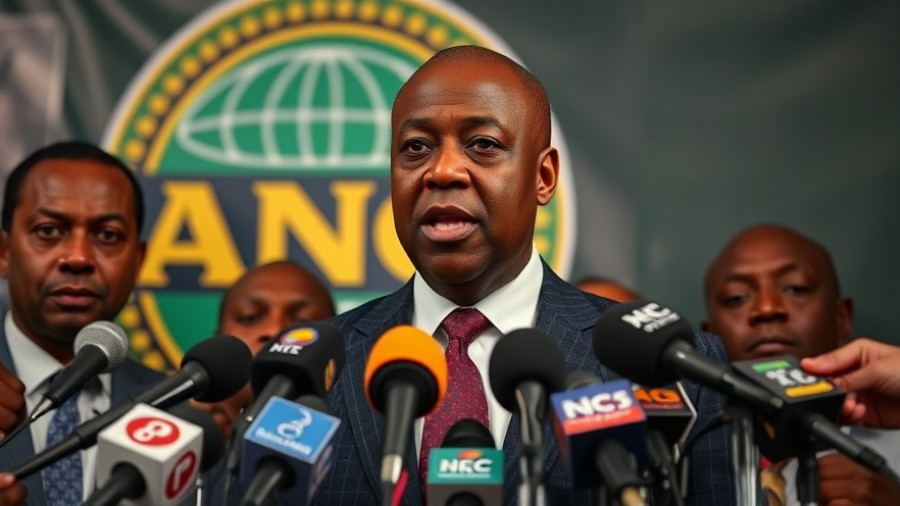
Urgent Call to Action: Arrests in the Madlanga Inquiry
In a striking appeal for accountability within South Africa's justice system, ANC Secretary-General Fikile Mbalula has called on law enforcement to proactively arrest individuals implicated in the ongoing Madlanga Commission of Inquiry. This inquiry is dissecting allegations of deep-rooted criminality, rampant corruption, and political meddling entrenched within the fabric of the criminal justice landscape.
Addressing attendees during the prestigious Oliver Reginald Tambo Memorial Lecture held in Mbizana, Eastern Cape, Mbalula underscored the urgency of swift action. His rhetoric implores that the integrity of leadership within the ANC must prioritize the welfare of the impoverished majority. He alarmingly stated that, "We must not wait for the commission to finish its business; if there are people who are supposed to be arrested, let them be arrested. We do not care who he or she is.”
Implications for Political Dynamics Amidst the Inquiry
The Madlanga Commission has unearthed evidence linking high-profile members of the ANC, including NEC member and Police Minister Senzo Mchunu, to alleged criminal activities. Currently, Mchunu is on special leave as investigations intensify against him, stirring heated debates on the accountability of political figures.
Such accusations have resonated through the corridors of power, prompting calls from various quarters—including opposition parties like the DA and EFF—for comprehensive political reform and greater transparency. Late revelations hint at a political realignment, as the 2024 general elections loom, potentially forcing parties to recalibrate their platforms and strategies in light of the inquiry's findings.
Broader Consequences: A Call for Electoral Reform
The revelations stemming from the Madlanga Commission shed light on profound systemic issues indicating a need for electoral reform and enhanced judicial independence. Without addressing the apparatus supporting these alleged corruptions—ranging from police reform to parliamentary oversight—the integrity of South Africa’s governance may remain under question.
This inquiry presents a pivotal moment for South Africa. The demand for accountability echoes the sentiments expressed during past electoral cycles, particularly regarding issues like land reform, income inequality, and service delivery which remain crucial to voter engagement. Opposition leaders, such as John Steenhuisen and Julius Malema, are keenly observing these developments to influence public discourse as the elections draw near.
The Path Ahead: Voter Engagement and Political Accountability
As Mbalula championed the need for immediate actions against the implicated, it raises an essential discourse on civic engagement. Citizens are compelled to demand heightened accountability from their leaders, emphasizing the importance of transparency in governance.
In light of contemporary revelations, constituents should engage in discussions about their expectations of government performance and voter turnout in forthcoming elections. To participate effectively in democratic processes, South Africans must understand their rights and the significance of electoral integrity in shaping the nation’s future.
Conclusion: A Critical Crossroads for South Africa
The ongoing developments from the Madlanga Inquiry are poised to significantly impact South Africa's political landscape. With Mbalula’s vocal support for immediate arrests as a cornerstone of a broader anti-corruption agenda, the foundation for future reforms and improvements in governance lies ahead.
As South Africans contemplate their political futures, the importance of informed civic participation cannot be overstated. It is a moment for collective reflection on the values that underpin leadership and the accountability that citizens should expect. As such, prepare to engage critically with your representatives and advocate for the reforms necessary for a transparent and equitable future.
 Add Row
Add Row  Add
Add 




Write A Comment